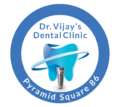PAINLESS EXTRACTION

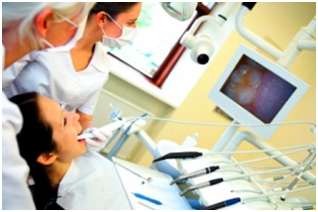
A tooth extraction also referred to as exodontia is the removal of a tooth from the mouth. Extractions are performed for a wide variety of reasons, including tooth decay that has destroyed enough tooth structure to render the tooth non-restorable. Extractions of impacted or problematic wisdom teeth are routinely performed, as are extractions of some permanent teeth to make space for orthodontic treatment.
UNAVOIDABLE REASONS FOR TOOTH EXTRACTION
The most common reason for extraction is tooth damage due to breakage or decay. There are additional reasons for tooth extraction:- Despite the reduction in worldwide prevalence of dental caries. Severe tooth decay or caries with infection acute or chronic alveolar abscess) is still the most common reason for extraction.
- Severe gum disease commonly known as Pyorrhea which may affect the supporting tissues and bony structures of teeth.
- Extra teeth, known as Supernumerary teeth which are blocking other erupting teeth.
- In preparation for orthodontic treatment (braces)
- After trauma, teeth in the fracture line.
- Fractured or broken teeth.
- Teeth detrimental to fit or appearance of dentures.
- Insufficient space for wisdom teeth(impacted third molars). When your wisdom teeth are not erupting or partly erupting & giving pain or discomfort in the jaws.
- Cosmetic reason; teeth with poor appearance, structurally week and unsuitable for restoration
- Receiving radiation to the head and neck may require extraction of teeth in the field of radiation.
- Deliberate, medically unnecessary, extraction as a particularly dreadful form of physical torture.
TYPES OF EXTRACTION

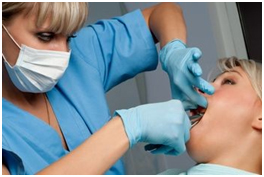
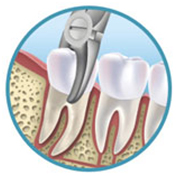
Simple extractions are performed on teeth that are visible in the mouth, usually under local anesthetic, and require only the use of instruments to elevate and/or grasp the visible portion of the tooth. Surgical extractions involve the removal of teeth that cannot be easily accessed, either because they have broken under the
gum line or because they have not erupted fully. Frequently, the tooth may be split into multiple pieces to facilitate its removal.POST OPERATIVE CARE AFTER TOOTH EXTRACTION
To Control Bleeding, bite firmly the gauze pack over the surgical area for, at least, 30 to 45 minutes; then discard it gently.- Some blood will ooze from the area of surgery for several hours and it is normal.
- Do not spit , or suck through a straw, since this will promote bleeding.
- To avoid pain, bleeding & swelling , place an ice pack or cold towel over the area from outside for about 5-6 hrs at home (no longer than 20 minutes at a time).
- Do Not Rub or touch the area with your tongue.
- Keep yourhead elevated on pillow while lying or sit in a chair with affected side raised.
RINSING
- Rinse your mouth with Betadine Gargles 3-4 times a day for 7-10 days from immediate effect
- Do not brush your teeth for the first 12 hours after the surgical appointment.
- Additionally Rinse your mouth with warm water + salt, after 24 hours of extraction (1/2 teaspoon salt in 1/2 cup [4 ounces] of warm water) after tooth-brushing and every 2 hours.
- Swish some mouthwash if you find any sores, providing fast, effective pain relief.
- After about 20 hrs. Brush the teeth gently with soft or a super soft tooth brush a voiding the surgical site.
REST
- Get plenty of rest; at least 8 to 10 hours of sleep each night. Avoid strenuous exercise during the first 24 hours, and restrict excessive mouth movement. Physical activity may increase bleeding, swelling & pain.
DIET
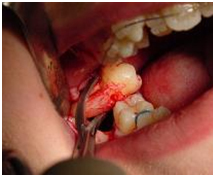
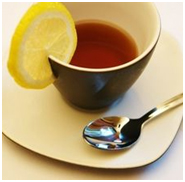
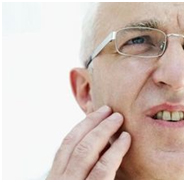
- Drink a large volume of water and fruit juices to prevent dehydration.
- Do not drink through a straw because this may promote bleeding.
- Avoid hot food for the first 24 hours after surgery because this may promote bleeding, swelling & pain.
- Avoid hard & raw foods (that require excessive chewing) for 3-5 days.
- Take Cold liquids and a soft high protein diet initially after extraction.
- Eat a soft & Cold diet for the first 24 hours after tooth extraction.
- You can resume a normal diet (home food), the day after tooth removal.
PAIN AND DISCOMFORT
- Some discomfort is normal after surgery. It can be controlled by taking the medication your dentist has prescribed and follow all the instructions how & when to take medicines as recommended.
- Start taking your pain pills before the numbing medication has worn off.
- Take your pain pill with an 8 oz. glass of water and/or after a small amount offood to prevent nausea. Over-the-counter (OTC) pain medications or Painkillers may be used for temporary pain relief. Take these as directed on the package and around the clock. Do not overdose these generic drugs:
- ASPIRIN, or IBUPROFEN, or KETOPROFEN, or NAPROXEN SODIUM, or ACETAMINOPHEN or Nimusulide
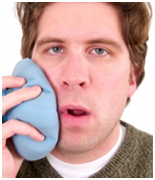
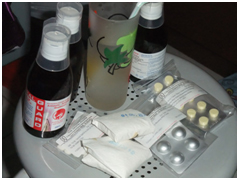

SWELLING AND ICEPACKS
- Swelling after surgery is a normal body reaction.
- Swelling reaches its maximum about 48 hours after surgery, and usually lasts 4-6 days.
- Applying ice packs over the area for the first 24 hours (no longer than 20 minutes at a time) helps to
- External Heat is Not used. It increases swelling and Pain.
BRUISING
- You may experience some mild bruising in the area of your surgery.
- This is a normal response in some persons and should not be considered a cause for alarm.
- It will disappear in 7-14 days.
SUTURES OR STITCHES
- If stitcheswere placed in area of your surgery, your dentist will tell you if and when they need to be removed (usually in about 1 week).
- Avoid tongue annoyance to close by Stiches
- You experience discomfort you cannot control with your pain pills.
- You have bleeding that you cannot control by biting on gauze.
- You have increased swelling after the third day following surgery.
- You have a fever.
- You have any questions.
DO KEEP IN MIND THAT:
Keep Infection under control after Tooth Extraction with good oral hygiene & betadine gargles. If you have difficulty fighting off infections you may need to take higher antibiotics aftertooth extraction. This includes those who: Were born with heart defects (Congenital Heart Disease). The removal of teeth can allow germs in the mouth to enter the bloodstream and cause infections in other parts of your body. So take your medicines properly.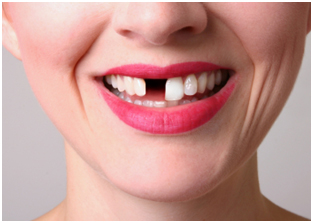
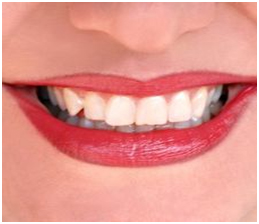
Have damaged or artificial heart valves. Have had bacterial endocarditis, an infection of the lining of the heart. Have artificial joints, such as a hip replacement. Have diabetes or another disease that causes an impaired immune system.
